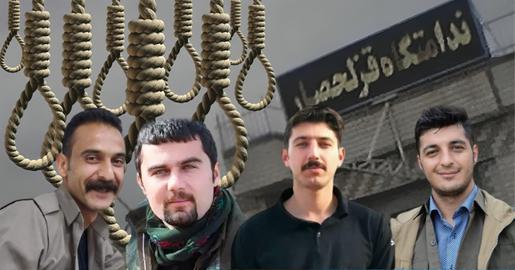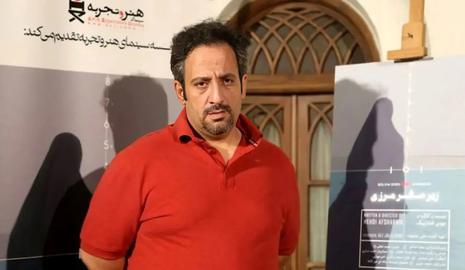Last week, four Kurdish political prisoners were executed in Ghezelhesar prison, near Tehran.
Their families say the bodies have not been handed over to them, and they are unaware of the location where their loved ones have been buried.
Is this action by the judicial system of the Islamic Republic legal or consistent with jurisprudence and Islam?
***
Eight days have elapsed since the early hours of January 29, when Vafa Azarbar, Mohsen Mazloum, Pejman Fatehi and Mohammed Faramarzi were put to death, despite international efforts to stop their execution.
During these eight days, according to statements from their families, both the judiciary and the Prisons Organization refused to hand over the bodies to their relatives.
This is not the first instance where the Islamic Republic has withheld the bodies of those executed from their families.
After five Kurdish political prisoners – Shirin Alamholi, Farzad Kamangar, Farhad Vakili, Ali Heydarian and Mehdi Islamian – were executed on September 10, 2010, their bodies were never returned to their families.
And after more than 13 years have passed, these families remain unaware of the burial sites of their loved ones.
Dayeh Sharifeh, the mother of Ramin Hossein Panahi, a Kurdish political prisoner executed in September 2018, has never been informed of the burial site of her 24-year-old son.
Thousands of political prisoners executed in the 1980s have had their remains placed in unmarked graves across Tehran and other cities, as well as in shallow pits, with the dead bodies being exposed to scavenging birds.
Claiming Islam While Contravening Sharia Law
The Islamic Republic has long championed Islam and openly justifies punishments such as the death penalty under the guise of Islamic principles and divine decrees.
However, the government that considers itself the standard-bearer of Islam does not adhere to religious rites after the execution of its opponents.
Sedigheh Vasmaghi, an Islamologist, tells IranWire that the government's decision not to hand over the bodies of the four executed Kurdish political prisoners to their families "cannot be justified by any Sharia law or moral and legal doctrine."
"This action blatantly contradicts moral and societal norms. Throughout history, across all cultures, even among the most primitive tribes, it has been customary that when a member of a family is killed, the body rightfully belongs to that family.
"There has never been a practice anywhere in the world of seizing the body of a deceased individual.
"Even in the early days of Islam, on the battlefield, when opposing sides clashed and casualties occurred, each side would retrieve the bodies of their fallen comrades.
"Therefore, given the universality of this customary practice, there is no need for jurisprudential discussion on this matter. I have not come across any legal provision addressing this issue, as it is inherently self-evident and universally recognized."
Mohammad Taqi Fazel Meibodi, a Shia cleric, tells IranWire that the bodies of executed prisoners “should be promptly handed over to the deceased's parents."
"Withholding the body is categorically inappropriate. Apart from the executions themselves, at a time when human rights violations are prevalent and Islam emphasizes the sanctity of life, such actions are neither just nor in the country's best interest.
"The bodies should be released promptly. These individuals are human and Muslim and deserve to be laid to rest with utmost respect.
"The failure to promptly release the bodies or disclose the burial site to the families contradicts Sharia, customary norms, and the law.
"According to jurisprudence, permission from the deceased's guardian is required to perform burial rites and prayers.
What does the law stipulate?
Qasem Boeidi, a jurist and human rights lawyer, explains to IranWire that the law explicitly mandates the authorities to hand over the bodies of those executed to their families.
When the individual has no relatives, “under Sharia and legal regulations, the government is responsible for burying them at its own expense," he says.
"Whether individuals are Shia, Sunni, Turk, Kurd, Christians or Jew, they should be treated according to their religious laws."
visit the accountability section
In this section of Iran Wire, you can contact the officials and launch your campaign for various problems



























comments